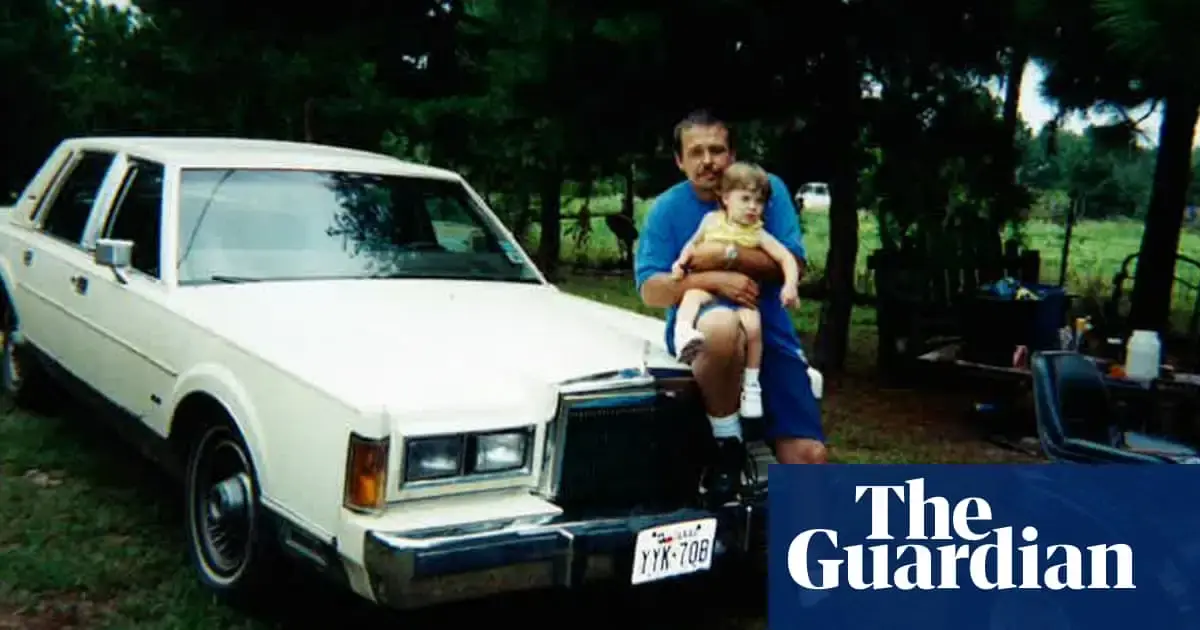A Texas prisoner who is facing execution having been sent to death row on the basis of “shaken baby syndrome”, a child abuse theory that has been widely debunked as junk science, has had his petition to the US supreme court denied.
The country’s highest court issued its denial on Monday morning giving no explanation. Robert Roberson, 56, who was sent to death row in 2003 for shaking his two-year-old daughter Nikki to death, had appealed to the justices to take another look at his case focusing on the largely discredited forensic science on which his conviction was secured.
The court’s decision leaves Roberson’s life in jeopardy. Having come within four days of execution in 2016, he has already exhausted appeals through Texas state courts and must now rely on the mercy of the Republican governor Greg Abbott who rarely grants clemency.
“Robert Roberson is an innocent father who has languished on Texas’s death row for 20 years for a crime that never occurred and a conviction based on outdated and now refuted science,” the prisoner’s lawyer, Gretchen Sween, said.



It is junk science in that assuming any physical damage that matches the three symptoms to a baby was intentional and that the way that it is regularly used in courts has the same assumption of intent. The whole shaken baby syndrome is tied up with the assumption of intent in the context of courts enough to make it junk science in the same way that failing a stress detector means someone is lying.
Yes, shaking a baby causes those injuries. So can seizures. Which makes this not junk journalism, as they even quoted a recent ruling that literally called it junk science.
You are just repeating the same thing I said: that other things can cause the same injuries, and assuming that the triad of symptoms mean abuse is the part that is junk science. Not the existence of shaken baby syndrome, which is real.
But that’s not what the article says, over and over again. I really thought this was unnecessary, but anyway, here we go. Here are the quotes that I find problematic because of their wording:
The “shaken baby syndrome” itself is not “scientifically unreliable”. Using it as proof of abuse is. But the shaken baby syndrome is real and scientifically proven to happen. This wording seems to imply the former, not the later.
The “shaken baby syndrome” has not been “debunked as junk science”. It’s only been debunked as proof of abuse. But, again, child abuse does indeed cause “shaken baby syndrome”, that’s not a debunked theory. Once again, the wording seems to imply the former, not the later.
It’s been questioned as a forensic tool, not as a medical diagnosis. As much as I look for proof that says otherwise, I can’t find anything. It’s a real, unrefuted medical diagnosis. I’ve read the links they quote, and again, they focus on using it as forensic evidence of abuse. Nothing about it not being a real medical diagnosis. This wording doesn’t just imply, it’s straight up saying that it’s not a real or valid medical diagnosis. which is not true.
Yeah, the quote mentioned by snooggums, again, implies that the whole “shaken baby syndrome” is junk science. But I actually read that document before my other post, and you don’t have to read too much to find out that the meaning is exactly the one I mentioned. From page 3, literally the first sentence of the text:
So once again, this article is giving the idea that the whole diagnosis is a debunked myth, but that’s not what the court document says. It just says that the symptoms are an unreliable proof of abuse, since other causes can create the same symptoms.
I don’t know if someone (maybe the author, maybe the editor) didn’t really understand what has been debunked exactly, or whether they are bad at writing, but the way it’s worded spreads dangerous misinformation about health issues in children. Over and over again, it dismisses the entire “shaken baby syndrome” as junk science, instead of specifying that “its use as evidence of abuse” is what has been debunked.
No, the article is not saying it doesn’t exist, just that it is junk science in the context of how it is used in courts.